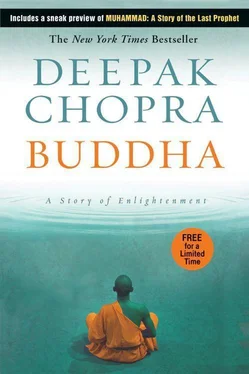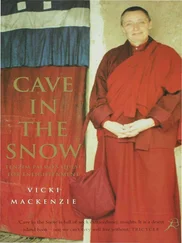“I beg my rights, Your Highness.” Devadatta dropped to one knee in front of Suddhodana. “This low-caste scum touched me. You all saw it. I beg my rights.” The crowd stirred and became uneasy as the king remained immobile and silent for several seconds.
“The king acknowledges Devadatta’s rights.” Suddhodana finally spoke but not with his usual force. “He can decide the fate of any low-caste who has defiled him.”
Devadatta smiled. “Death,” he said.
Suddhodana scowled. “Think carefully. It was just a touch, young prince. Let me remind you, this is a cause for justice.”
“I’m only looking for justice. This scum intended to catch me off guard, knock me over, and then stab me. See, his weapon.”
By now two guards had grabbed Channa and wrestled the dagger from him. Pushed to his knees, Channa shouted, “If that’s what I was going to do, let me finish it!”
Devadatta shrugged and held his open hands out to the king. “My case is proved. Let me have my rights, as you promised.”
“No, let me have mine.”
Without warning Siddhartha was kneeling at the king’s feet beside his cousin, his voice on the edge of rage. “I have the right to fight in place of my brother, and Channa is my brother in everything but name. Everyone knows it, so why pretend? If any man of caste dares to defame Channa, I will fight that man, whoever he is.”
This was the moment that Canki shouldn’t have missed by leaving early. As high Brahmin, he had full authority, over even a king, to decide disputes of caste. These were many and complicated. Scriptures held, for example, that if the shadow of an untouchable fell across the path of a Brahmin, unclean contact had taken place and the Brahmin must return home to bathe. Food touched by someone of low caste could not be eaten by someone of high caste. This was clear enough, but what if the high-caste person was dying and the food was needed to save his life? Canki held court over these bewildering issues. But he had left the scene.
“Get up, both of you,” Suddhodana ordered. With disgust he knew that Devadatta had more right on his side than the prince. Often in the heat of battle a low-caste’s weapon had accidentally nicked a high-caste comrade’s, drawing barely a few drops of blood. But this was enough to condemn the offender to death if the high-caste soldier demanded it. Channa clearly intended to draw blood; the waters weren’t muddied until Siddhartha foolishly intruded. Suddhodana now had no choice.
“The two princes both have right on their side,” he announced. “I will betray justice if I decide against either of them, so let Nature be the judge. The two princes will fight.”
No one expected this judgment, but the first to recover from the general consternation was Devadatta, who gave a wolfish grin. Between arrogance and despair at his situation, he knew he had no future, not one befitting his worth. His fatalistic streak would be satisfied if he managed to kill this despised cousin who had led to his own imprisonment, or else got killed trying. “Sword and dagger,” he said.
Siddhartha nodded grimly. Already free of helmet and chest plate, he began to strip off the rest of his armor for better mobility. But more than that, he wanted the fight to be decisive. The truth was that each of them-Siddhartha, his father, and Devadatta-was trapped by the others. Astonishingly, all three had come to this realization at the same exact moment, a moment from which there was no turning back.
The sky was divided between sun and clouds as the fighters circled each other. They had stripped down to cotton pants, their chest and feet bare. Siddhartha kept his eyes fixed on Devadatta’s, because as tempting as it was to watch his opponent’s hands, he knew that Devadatta’s glance would give away his intentions.
Siddhartha felt he was moving in a dream. A part of his mind floated high above, looking down in wonder that a fight to the death ensued. But Siddhartha’s instincts for survival were strong. He shook himself and made the opening lunge, his sword hand ahead of his dagger so that by warding off the first blade, Devadatta might open himself to the second one. Devadatta was agile and ready-he jumped to the side with a shouted “Ha!” and slashed with his own sword. Siddhartha went by too fast and wasn’t hit.
Devadatta began a relentless round of parry and thrust, making Siddhartha counter blow after blow with his sword. Each time metal clanged on metal, a shock wave went up his arm. Siddhartha’s muscles ached, and he knew that Devadatta had an advantage over him. This was his cousin’s first combat of the day, while Siddhartha had been fighting for hours. He had to win quickly or his energy would fail. Knowing that Devadatta was following his eyes as well, he made a feint, glancing right, taking a half step in that direction. When Devadatta’s dagger followed him, the move opened up his body, and Siddhartha stuck his sword into the exposed midriff. It was incredible luck. If the blow had struck home, it would have been fatal.
But in the instant before the blade entered Devadatta’s body, Siddhartha heard his heartbeat thud in his ears with long stretches in between the strokes. He felt the breeze blow the hairs on his forearm slowly, delicately, back and forth, and each blink of an eye was like a door closing, leading to blackness, before it opened again and the world reappeared.
He felt very different from before-calm, free of anger. Out of the corner of his eye he could see that the mood of the king had shifted. Suddhodana was returning to reason, and as he did, the thought of loss of his only son was intolerable. Suddhodana was within half a breath of stopping the fight. He had yet to register that Siddhartha was about to win. The last thing Siddhartha’s eye caught was his sword inching closer to its perfect target.
Suddhodana shouted, “Stand back, a fighter is down!” He wanted to run forward and embrace his son. The prince stood over Devadatta’s fallen body, panting hard.
“Get up,” he said. Devadatta was shaking his head. Instead of delivering a fatal wound, Siddhartha’s sword tip had been deflected, slicing the skin over his heart. He spat out the dust he’d swallowed going down, aiming deliberately at Siddhartha’s feet. Siddhartha’s eyes fixed on the slimy spot it made.
He held out his hand to Devadatta. “You win, if it pleases you.”
Devadatta refused the hand with contempt. “It’s not going to be that easy, boy,” he hissed. Siddhartha ignored the jibe and turned around.
“I quit this fight,” he said in a loud voice, keeping his eyes away from the king’s. “I can’t prevail over a better man. Give the honor to my cousin.”
Suddhodana shook his head. “You have prevailed. The contest is over,” he shouted, but few heard him. Screams rent the air because, at the moment when Siddhartha turned away from him, Devadatta lifted his dagger and raked its rippled blade across the small of his opponent’s back. Siddhartha staggered. Devadatta brought back his arm to strike straight up into his enemy’s stomach as he doubled over.
Siddhartha never gave him the chance. He reached out and grabbed Devadatta’s hair with one hand while batting the threatening dagger away with the other. The gash it made across his palm was insignificant; rage canceled out the pain. He banged Devadatta’s skull into the packed dirt. The first time was enough to make his opponent half senseless, but Siddhartha repeated the action twice more. Devadatta’s eyes betrayed panic when he realized that he was alone and defenseless. The second time his head smashed against the ground, his eyes glazed over; the third smash, and they rolled up into his head.
Siddhartha paid no attention. He lifted Devadatta’s limp body off the ground in a wrestler’s hold around the chest, squeezing the breath out of him. It was remarkably easy to do, as if he were shaking a rag doll. Siddhartha locked his arms into a vice and leaned back, his face to the sky. Inside a voice said, “This is freedom. This is what the gods feel like when they mete out death.” Siddhartha believed the voice and waited for the moment when he would let Devadatta’s body fall.
Читать дальше












